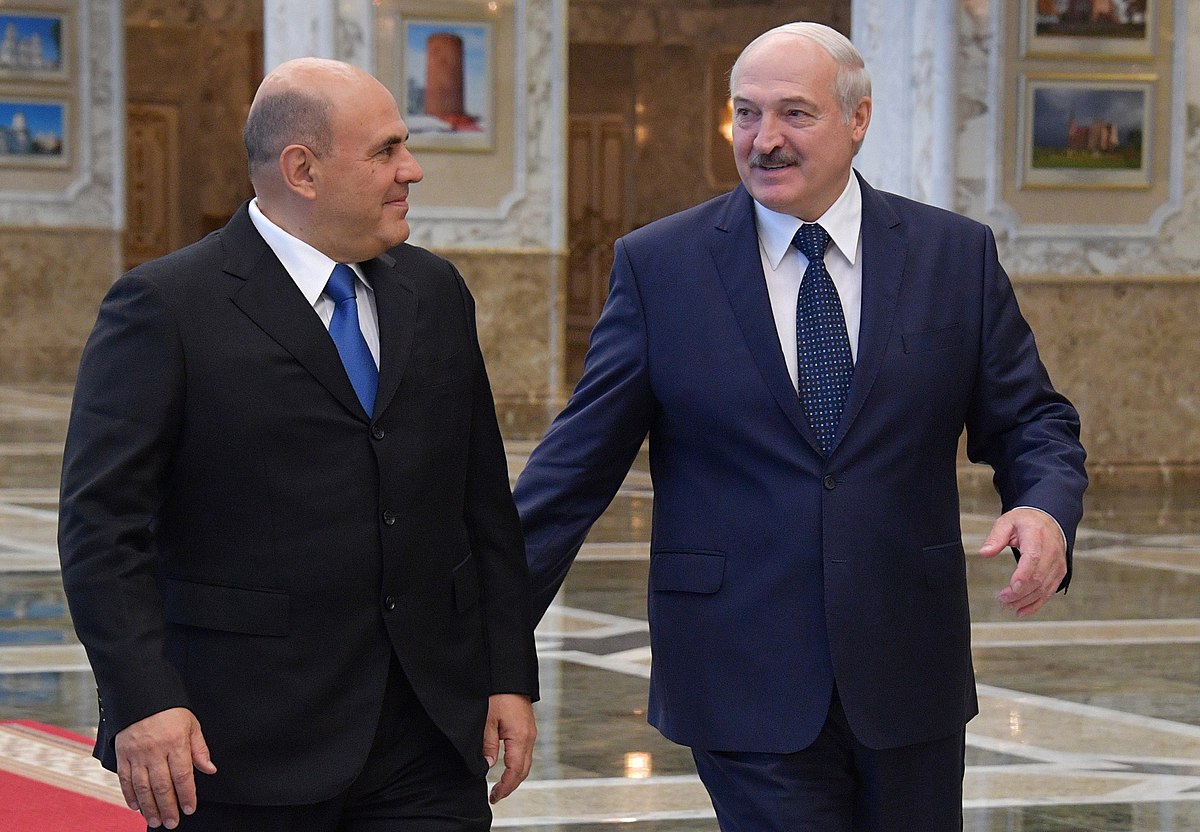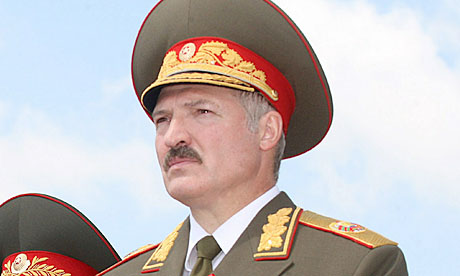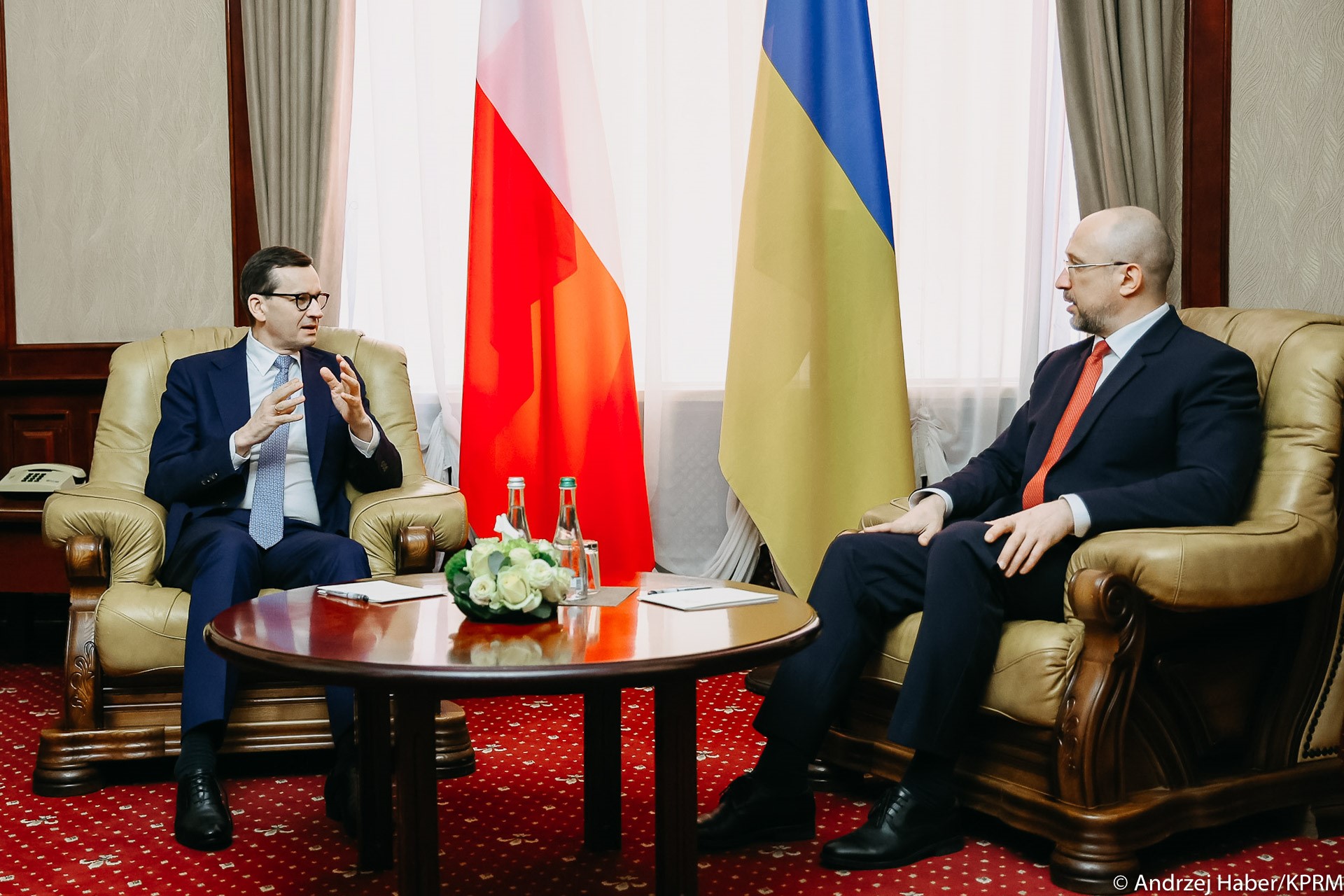Despotism vs. Faith: Lukashenko’s attack on the Church

Catholics in Belarus are starting to be persecuted. The Polish authorities are silent on the matter, although Polish believers are often affected
The mass anti-government demonstrations in Belarus after the 2020 elections could not pass without severe consequences for the situation of the Catholic Church. First, because in the mass consciousness, as well as in Lukashenko’s mind (despite tactical agreements), Catholics represent a potentially iniquitous social group.
The attitude of the Belarusian bishops toward the protests has varied. From the strong verbal support given by the Ordinary of the Vitebsk diocese, Msgr. Aleh Butkevich, to the moderate support for that time of the still archbishop, Metropolitan Tadeusz Kondrusiewicz of Minsk-Mohylev, to the tacit disregard performed by Bishops Aleksandr Kashkevich and Antoni Dziemianka of Grodno and Pinsk.
At that time, most likely as a result of secret talks between the Vatican and Lukashenko, the metropolitan archbishop retired and his place in the Minsk curia was taken by, until then, auxiliary bishop Jozef Stanievsky of Grodno, who also remained silent regarding the political situation. Three priests, Eduard Sienkevich, Alexander Fiadotov, and Vitaly Bystrov, were briefly detained, but this did not look like a systemic operation.
Quiet before the storm
After several weeks of silence, it seemed that the Belarusian authorities would not pay any more attention to the Church. The lack of action was most likely due to the extent of the authorities’ repression of other social groups.
After some time, however, it was decided to strike the Church, and not just once, but methodically. This intention was fulfilled in several localities in the form of “assaults by vandals or criminal incidents,” repression of priests, and attempts to close churches, of course under the pretext of “national security,” rather than fighting religion or, more specifically, the social teaching of the Church.
The chronology of events was as follows:
– December 2020 – detainment of Fr. Viktor Zhuk SJ, working in Vitebsk together with Eastern Rite priest Alyaksey Varanka;
– April 2021 – a break in at a church in Novolukoml, Vitebsk diocese, where profanities are written on the walls of the chancel;
– May 2021 – unidentified persons force their way into the premises of the Bishop’s Curia in Minsk, the window of a car belonging to the Curia is broken, decorative elements, flowers on the Curia’s premises, etc., are knocked over;
– July 2021 – a break in at St. Barbara Church in Vitebsk, electrical equipment and cables are stolen;
– consecutively, in March and August 2022 – Fr. Alexander Baran of the parish in Lyntupy, Vitebsk diocese is detained;
– in March 2022, Fr. Andrzej Bulczak of Postavy, Vitebsk diocese, a citizen of Poland who had traveled to Poland, is tried and fined in absentia;
– March 2022 Eastern Rite priest Vasily Yahorov of Mogilev is fined;
– March 2022 – Fr. Ihar Lashuk of Stolpets, Minsk-Mohylev diocese is fined;
– April 2022 – Fr. Andrey Kievich of Horek, Minsk-Mohylev diocese, a priest who also celebrates Mass in the old Latin rite, is fined;
– July 2022 – Fr. Eugene Uczkuronis of Smorgon, Vitebsk diocese is fined;
– July 2022 – Fr. Andrey Vashchuk SDS, pastor of Holy Spirit parish in Vitebsk, is detained and fined. He leaves Belarus after the incidents;
– late September 2022 – the church of St. Simon and St. Helen in the center of Minsk (commonly called “Red” after the color of the bricks) is broken into and set on fire, the church is then closed “until further notice” for the “safety” of the faithful;
– November 2022 –Unitarian priest Ihar Kandraćjeu from Brest is detained;
– November 2022 – editor of the Uniate newspaper Carkva, lay believer Ihar Baranouski of Brest, is detained;
– November 2022 – Vice-dean of the Mogilev deanery, Fr. Vitali Czabatar CMF, is detained;
– December 2022 – Eastern Rite priest Vitaly Bystrou of Ivacevich, Diocese of Pinsk, is detained;
– December 2022 – Rev. Jozef Gemza of Grodno, a citizen of Poland, has his license to practice his profession revoked; he subsequently returns to Poland;
– January 2023 – windowpanes in the Mogilev archcathedral are broken;
– January 2023 – problems with the legal status, lease, and access to the church in Bobruisk (Minsk-Mohylev diocese), which remains in municipal ownership of the city.
Analyzing the events outlined above, one can see their overrepresentation in the Vitebsk diocese. Its Ordinary – Bishop Aleh Butkevich – spoke out in support of the 2020 protesters.
Symbolic hit
The main blow was directed at the church of St. Simon and St. Helen in Minsk, which for years had also been the center of various religious and cultural events, and whose pastor was the charismatic Fr. Vladislav Zawalniuk.
The impact is symbolic. The church is located on the central Independence Square in Minsk. Near it stands the building of the Government of the Republic of Belarus with a monument to Lenin. The crosses over this temple in the center of Minsk, which were restored in 1992, testified to the defeat of the Communist Party’s course and its “struggle against religion.” It even seemed at the time to be a final victory. It turns out that this struggle must be undertaken anew.

The investigation into the break-in and arson at this temple has been going on for four months. The perpetrators have still not been found. Knowing the situation in Belarus, there is little hope that they will ever be detected.
Although the fire caused by the burglars on September 26th, 2022, did not threaten the temple, and destroyed only the interior of the sacristy, the temple has not been opened since then.
A few weeks after the incident, contact was made with representatives of the Minsk curia, as a result of which Fr. Vladislav Zawalniuk was removed from talks with government representatives, and Fr. Yury Sanko became the parish administrator for contacts with state representatives.
For now, it is difficult to hold out hope that the temple will be recovered in the short term. This is not helped by the political situation inside the country and the Russian-Ukrainian war, which is a stimulus for the escalating rhetoric of the Belarusian authorities. The victims of this rhetoric have traditionally been the Church and the Poles.
There is also little hope in the Vatican’s ability to solve similar problems.
On more than one occasion, Church diplomats have managed to communicate with the Belarusian “head of state.” This was the case with the periodic non-admission of Archbishop Kondrusiewicz to Belarus, or in 2013 over the persecution of Father Vladislav Lazar.
The Apostolic Nuncio to Belarus, Archbishop Ante Josić, did not interrupt his contacts with representatives of the Belarusian authorities, and recently they became even more intensive, because in connection with the sudden death of Foreign Minister Uladzimir Makey and the assumption of the post by the new Minister Sergei Aleik, the nuncio met with both foreign ministers of the Republic of Belarus within a month. During the latest conversation, they reaffirmed “their willingness to continue active cooperation in various fields and open and respectful dialogue on issues of common interest,” reports the Belarusian Foreign Ministry website. Sounds diplomatically dry and standard, but the conclusion is that the sides are talking to each other and continue to have good contact.
While the Polish Foreign Ministry communicates from time to time that it is taking behind-the-scenes steps to free journalist Andrzej Poczobut or earlier other representatives of the ZPB, it remains silent on the matter of hitting the Catholic religion. I understand that the reason may be a reluctance to get in the way of the Vatican, which has its own ideas about how to deal with these issues in Belarus. Nevertheless, Catholics in Belarus are still largely Polish as well, so courting compatriots in matters of religious worship would be most appropriate. Catholics and the Church in Belarus today need the prayers of all Poles.
The author was born in Minsk, lives in Belarus, and is a Catholic and social activist, journalist, and country scholar.
This article was published in March 2023 in “Do Rzeczy” magazine.



